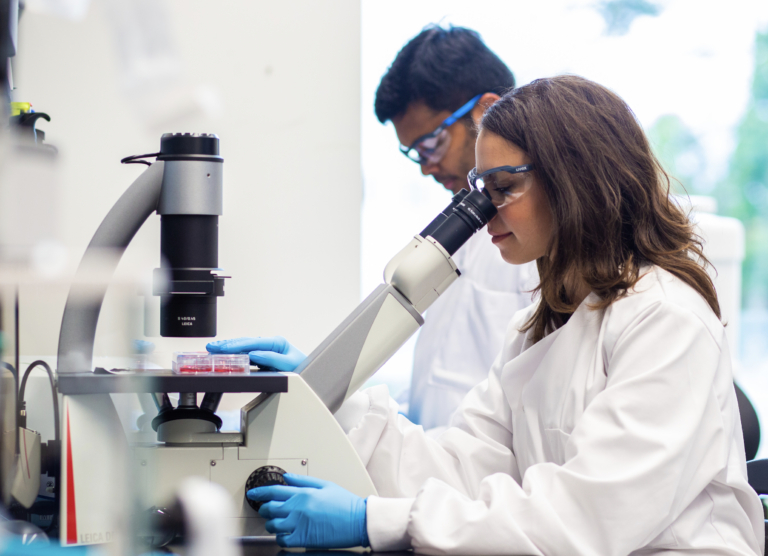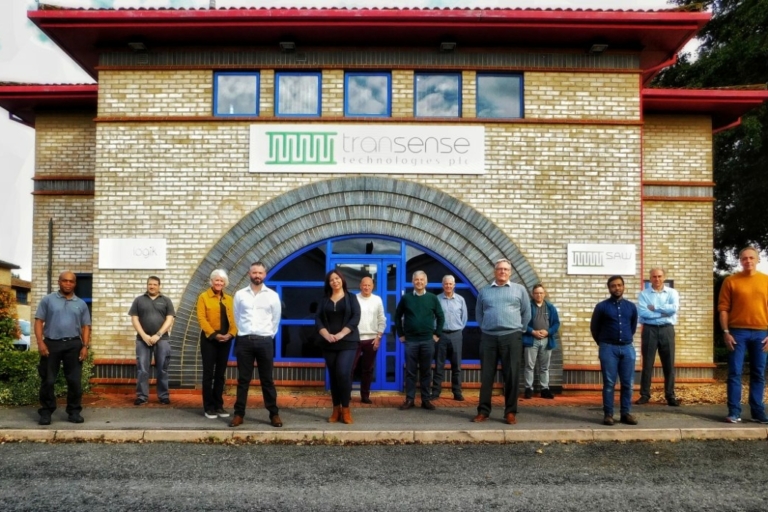Seven pioneering University of Bristol spinouts raise £20 million

The University of Bristol has one of the UK’s top commercialisation teams, according to new data from Research England.
Sugar dots to supercharge photosynthesis, a quantum camera, and a genuinely ground-breaking probiotic are among the Bristol innovations that have attracted over £19 million in investment over the past nine months.
The results of Research England’s 2022 Knowledge Exchange Framework (KEF), highlight Bristol’s strengths in Intellectual Property and commercialisation.
The KEF uses data covering a wide range of a university’s activities to form a comprehensive series of metrics against which universities are assessed in relation to other Higher Education Providers for each area.
According to figures published by Research England, The University of Bristol is one of the highest performing universities in the UK for driving commercialisation of research and third in UK for average investment per spin-out.
In this second, expanded version of the KEF, Bristol was also found to excel in working with business and research partnerships. The KEF results reinforce the findings of other reports ranking University of Bristol sixth in the UK for spinout formation, third for investment into spinouts, and first for return on investment.
University of Bristol spinouts, supported by the Research & Enterprise Division within the University, attracted £19.2 million of investment this year:
- QLM has raised £12 million to develop a new type of LiDAR (laser imaging, detection, and ranging) camera based on quantum technology that can see and accurately quantify greenhouse gas emissions.
- Ceryx Medical is a healthtech start-up developing bioelectronic technology that can mimic nerve centres to control a range of autonomic or rhythmical processes in the human body. It has received £3.8 million to start human clinical trials of its innovative cardiac rhythm management device, Cysoni.
- Zentraxa specialises in the design, production and testing of novel biomaterials. It has received £320k funding for commercial concept development of both medical adhesives and personal care ingredients that could have uses in medicine, for example, skin bonding and wound care, or in personal use, such as skin and hair products.
- Glaia has secured £1 million in new investment to develop its carbon-based technology, the ‘sugar dots’, which increases crop yields and reduces emissions from crops by 30% when applied to the plants.
- FluoretiQ has received £1.1 million for its pioneering NANOPLEX, a 15-minute proprietary diagnostic platform for bacterial infections.
- Ferryx received £300k seed-funding for its lead product, FX856, a probiotic with demonstrated anti-inflammatory properties that survives and thrives during active inflammation. Currently there is no available probiotic that can function during periods of active inflammation.
- Lineat Composites, which uses reclaimed carbon fibre to produce high-performance fibre-aligned tape for manufacture of new composite components, raised seed investment of £685k.
“This is an excellent outcome which illuminates not just the quality and ingenuity of our scientists but also our strength in research commercialisation and collaboration,” said pro vice-chancellor for research and enterprise, Professor Phil Taylor.
“That’s why we have launched Bristol Innovations. To curate the world-class support, dedicated funding and bespoke training they need on their journey to create and scale their business. Whilst providing unparalleled insight and access to a wide and diverse range of Bristol’s innovators, opening a pipeline of qualified high potential opportunities. We will make a real and positive difference to the world we live in.”












